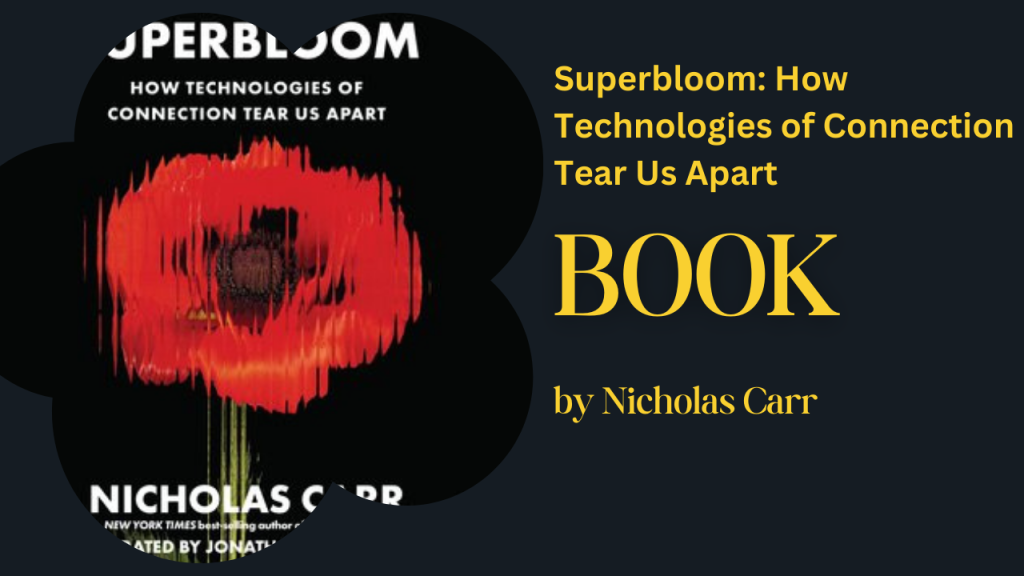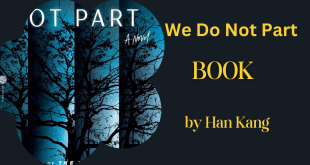
Nicholas Carr’s “Superbloom: How Technologies of Connection Tear Us Apart” offers a thought-provoking exploration of the unintended consequences of the tools that were designed to unite humanity. From the telegraph and telephone to modern social media, Carr weaves a rich narrative that highlights how these innovations, initially celebrated for their connective potential, have deepened misunderstandings and sown division across societies.
The Evolution of Communication Technologies: Promise vs. Reality
The optimism surrounding new communication technologies has always been boundless. From the invention of the telegraph, heralded as a harbinger of a more harmonious global society, to the rise of social media platforms designed to bring people closer, these innovations have reshaped human interaction. However, Carr argues that the very mechanisms designed to connect us have inadvertently caused fragmentation—of consciousness, society, and empathy.
One striking aspect of “Superbloom” is the historical context it provides, tracing the lineage of communication technologies and how each new wave was met with hope only to deliver unforeseen challenges. For instance:
- The Telegraph: Once considered a revolutionary tool to eliminate distance and foster global unity, it ended up intensifying global competition and political rivalries.
- The Telephone: Expected to enhance personal connections, it often decreased face-to-face interactions, reducing depth in human relationships.
- Social Media: Promoted as a democratic tool to amplify individual voices, it has contributed to information overload, echo chambers, and reduced attention spans.
The Fragmentation of Consciousness
Carr introduces the concept of “fragmentation of consciousness” to explain how the pervasive use of digital communication tools fractures our attention. By constantly shifting between stimuli, our minds lose the ability to focus deeply. Multitasking, a hallmark of the digital age, erodes cognitive depth, leaving people more distracted and less capable of critical thought.
Through vivid psychological insights, the book illustrates how technologies such as smartphones and social media encourage a kind of superficiality in interactions. Notifications, incessant scrolling, and the desire for instant responses contribute to constant interruptions that disrupt mental coherence and emotional depth.
Psychological Toll of Digital Overload
Carr highlights several ways digital communication tools influence mental health:
- Reduced Empathy: Face-to-face connections are supplanted by screen-based interactions, limiting our ability to perceive emotions effectively.
- Hyper-Stimulation: The constant barrage of notifications and updates creates a state of perpetual alertness, heightening stress.
- Shallow Engagement: By prioritizing speed over depth, digital tools encourage surface-level interactions rather than meaningful dialogue.
The Erosion of Empathy and the Rise of Division
A central theme in “Superbloom” is the erosion of empathy due to “digital crowding”—a phenomenon where the sheer volume of voices and opinions on digital platforms muffles individual emotions. Social media, for instance, magnifies this effect by promoting polarizing content, often sidelining nuanced discussions in favor of divisive rhetoric.
How Social Media Exacerbates Division
- Algorithm-Driven Polarization: Content tailored to reinforce personal beliefs creates echo chambers, deepening societal divides.
- Anonymity Breeds Conflict: The lack of face-to-face accountability encourages hostility and diminishes empathetic communication.
- Overemphasis on Metrics: Likes, shares, and comments prioritize sensational content over authentic connection, distorting online discourse.
The result is a hyper-connected yet emotionally distant world where ideological clashes become more common, and mutual understanding diminishes.
Nicholas Carr’s Call to Reassess Our Ideals
Carr does more than critique the impact of communication technologies; he challenges readers to reconsider the utopian visions associated with them. He encourages a critical re-examination of our relationship with technology, calling for:
- Mindful Use of Tools: Understanding the psychological effects of communication technologies and using them in ways that promote rather than hinder emotional well-being.
- Focus on Depth: Prioritizing meaningful conversations and relationships over fleeting interactions.
- Technological Design with Empathy: Developing tools that enhance human connection rather than replace it.
Who Should Read “Superbloom”?
This book is a must-read for anyone interested in the intersection of technology and societal change. Whether you’re a tech enthusiast, psychologist, historian, or casual reader seeking to understand the unintended effects of digital culture, “Superbloom” provides profound insights.
Carr’s balanced approach—acknowledging both the benefits and drawbacks of communication technologies—makes it a critical resource for educators, policymakers, and tech developers aiming to build a more empathetic and connected world.
Final Thoughts
Nicholas Carr’s “Superbloom: How Technologies of Connection Tear Us Apart” presents a compelling narrative that challenges our assumptions about the role of communication technologies in modern life. By weaving together historical context, psychological insights, and vivid examples, the book sheds light on the unintended consequences of progress. For those eager to explore the delicate balance between innovation and connection, this thought-provoking work is both timely and essential.
 Tox You It's all about earning solutions, News, Entertainment
Tox You It's all about earning solutions, News, Entertainment



